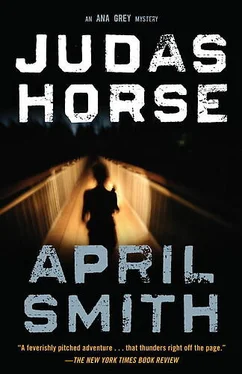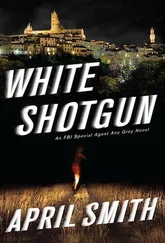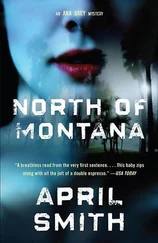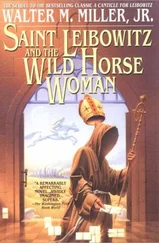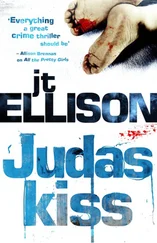Dick Stone replies amiably, “What’d you think? Can you see me wearing a suit, in the FBI?” “Suits with guns?”
He laughs. “Guys in suits, with no sex life, who fight alien life-forms.” “Yeah.” I grin. “That’s you.”
But Stone is deliberating something. “Do you remember the Weather Underground?” “That was a little before my time, but yeah, they were anarchists who were against the Vietnam War.” “‘Bring the war home,’” Stone says grimly. “That was the slogan.” “They set off bombs, right?”
“Three of them blew themselves up trying to build a bomb in a town house in Greenwich Village.” “I vaguely remember.”
Memorized the files.
“What about the Weather Underground?” I prompt. “Were you part of it?” “Me?” He dismisses the thought. “Hoover’s gangsters really fucked those people. Destroyed their lives. Hard times comin’, no matter which side you were on,” he says. “Sad. Really sad.” The truck window is down and a river wind is washing Dick Stone’s commanding profile clean, blowing his long blond hair back over the built muscles of his neck, so a tuft of white in the honey-colored sideburns is revealed. In the deep lines of the forehead, and the clenched brows trying to grip whatever vision keeps eluding him at the far side of the journey, I see a middle-aged man asking if his life has been a fake.
Then he attempts to discard it, the past thirty years of it, with a rapid shake of the head, but a long silence follows as the road climbs the dark pine highlands, and we exit, loop up and back toward a spectacular gleaming bridge that leads to the Washington side of the river, as if leaving one fairy-tale kingdom of spells and lies for another.
From the bridge, a hundred feet above the Columbia River, the vault of space the water carved is enormous, enough to contain the talk of all this history and more; it’s as if you could lift off the railing and lie in the hammock of the wind, out of time, like the hawks.
But as we cross the bridge, I feel the threads of my connection to the Bureau tug and unravel. Dick Stone’s aborted confession hints at more than what management has been telling me. I know this because of the transparency of the way we are together in the car. I know because he’s dropped the craziness he cultivates with Megan, as if he’s aching to find someone with whom he can come clean. For the moment, Dick Stone trusts me enough to take a brief ride on the violent currents of the past — entwined and gone, and constantly renewed, like the twisted air.
“What the fuck is that?”
We have crossed into the state of Washington, passing sunny fields of yellow mustard. Ahead we can see flashing lights and backed-up vehicles surrounding a traffic accident. I spot unmarked vans and the same cars from the sheriff’s department that passed us an hour ago, and wonder if it’s a trap.
Stone’s paranoia is infectious. Have the orders come through from Washington? Is a SWAT team waiting to rush the car?
Not now. Not yet.
“Let’s avoid this, go left,” I vamp, and we turn sharply, ending up on a long private drive that leads to a contemporary lodge of huge logs and flower-covered walkways, something out of a Swedish Western. We double back, avoiding the accident by a couple of miles, and take the first fork east.
Not to perdition, or to paradise.
To a river town called Stevenson.
Where Dick Stone’s pal Toby Himes wants to sell a boat.
We enter the town by crossing an old railroad bridge, which runs into a nostalgic street of local businesses — your time-honored pharmacy and coffee shop, picture gallery and independent bookstore — and stop for gas across the street from the Dough Folk bakery.
Dick Stone sends me inside to get crullers. “Best in the world,” he says.
I wait while a pair of elderly sisters, both wearing overcoats and high socks in the summer heat, order biscuits and gravy to go. Across the street, Dick Stone is putting gas into the white truck. Engaged in this most American moment, he seems to be an ordinary, slightly grizzled outdoorsman who takes his freedoms for granted.
The sun is shining and someone has driven by towing six canoes.
The white truck pulls to the curb and waits.
A hot breeze scented with cinnamon-sugar follows me as I hurry out the screen door of the bakery. Clutching a box of fresh fried crullers, I walk around the truck and slide into the front seat.
“Aren’t these great?” Stone wolfs one.
He smiles with pleasure at the old-fashioned taste of crisp dough and powdered sugar. We pass an inlet where a kayaker drifts in ripples of blue. Mountain buttercups are blooming in the new grass all along the road to Toby Himes’s house — an orderly house in a spick-and-span town.
Northwest tidy, you might say, like the ubiquitous trimmed mustaches and khaki shorts: a clapboard cottage painted buttermilk with pumpkin trim, a concrete slab for a porch where a golden chow sleeps beside a pot of geraniums. There are two cobalt blue metal chairs, the Dodge pickup in the driveway, along with a small powerboat on a trailer hitch, and a muddy ten-speed bike, unsecured, near a vegetable patch.
Toby Himes opens the door and the men embrace, Toby patting Stone on the back with thin, nervous fingers and calling him “Doctor.” He seems to match the clean and fluffy dog, and the neat yard. He is even more tailored than at the midsummer festival: a tall black man with glasses, white hair, and a neat white goatee, wearing a pressed shirt, slacks, and moccasins.
Not your image of a wacked-out Vietnam vet.
Toby Himes, who has an engineering job with the town of Stevenson, is still the only person of color I have seen. He must be Dick Stone’s age, but he is willowy and thin, whereas Stone has bulked out. The courtly manners and soft accent feel like the Old South, but in these austere bachelor chambers, there is no trace of a likewise genteel woman. One room is entirely bare except for free weights and Chinese drawings depicting the poses of kung fu.
Stone has made himself at home in a recliner with a glass of orange juice. A golf tournament is playing on TV. Toby is reluctant to take his eyes from the screen. During the commercial he asks Stone what he’s been up to.
“Messing with people’s minds again?”
Stone grunts, satisfied. “We had some fun. Tell Toby how we got right into the face of evil at the BLM.” I describe the midnight raid on Herbert Laumann’s family as Stone’s buddy listens politely, big brown eyes alert behind the glasses.
“This dude Laumann is a bureaucrat,” Toby concludes. “He’s got no say whatsoever over the wild horses — that’s policy out of Washington, D.C. He can’t do anything about it, so why are you busting his chops?” “Laumann is a symbol,” Stone replies testily. “Symbols are important in political work.” “To hell with politics!” Toby smiles and waves a spidery hand. “Right, Darcy? Tell me, what do you think of boats?” I used to live in Marina del Rey, California, with a view of three thousand sailboats.
“Never thought much about them.”
Toby slaps his knees conclusively. “Doctor? What do you say we initiate this young lady in the pleasures of cruising our beautiful river?” Death by drowning. In those rapids, all it would take would be a nudge over the side.
“No thanks, Toby. I get seasick. It’s embarrassing.” Dick Stone stretches out his legs and leans back in the reclining chair. “The boat looks fine.” “‘Fine’?” Toby clowns, popping his eyes. “How can you tell?” “Saw it in the driveway. It’s fine.”
Toby shakes his head. “Julius, my friend, you are full of surprises.” “Always.”
Читать дальше
